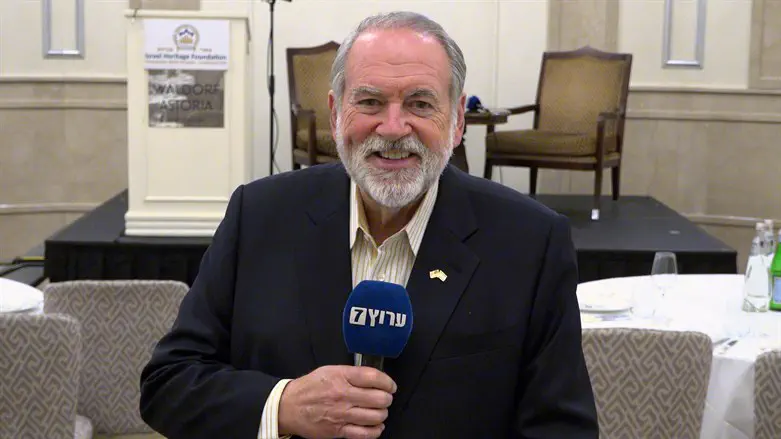I like Mike: A new chapter for Israel and evangelicals
Former Arkansas Governor Mike Huckabee's selection as US Ambassador to Israel marks a significant diplomatic shift. Our diplomatic approach rarely leverages our allies' rich cultural heritage and theological perspectives to strengthen international bonds – often using these elements instead to create distance. Yet cultural and religious ties frequently supersede economic and security interests in shaping national relationships.
Dror Eydar
Israel Hayom
Nov 20, 2024
Former President Donald Trump's election and his appointment of
pro-Israel cabinet members have rekindled familiar criticisms about
"extremists" and "messianic figures" ascending to power in America's
administration. Critics now express concern about reduced American
pressure on the Israeli government – the same critics who supported the
Oslo Accords and endorsed bringing thousands of potential adversaries
from Tunisia who had vowed to destroy Israel, arming them, and expecting
them to provide protection. Three Nobel Prizes speak volumes about that
decision.
Former Arkansas Governor Mike Huckabee's nomination as US Ambassador to Israel marks a significant diplomatic shift. A devoted Christian Zionist and evangelical leader, he ardently supports the Jewish people's return to Zion after their extended exile, as prophesied in biblical texts, throughout their ancestral homeland. He represents a broader trend in the Trump administration. Evangelicals, comprising hundreds of millions of followers worldwide, are re-emerging as a powerful force in global politics.
This movement's historical and theological foundations are profound. It represents a seismic shift in religious thought comparable to Christianity's fourth-century elevation to the Roman Empire's state religion. For centuries, "replacement theology" formed Christianity's cornerstone, maintaining that because Jews rejected Jesus's messianic claims and divinity, God withdrew their chosen status and transferred it to Christianity. Jews remained only "Israel in the flesh" – mere biological descendants of biblical Israel – while Christianity became "Israel in spirit," the true Israel (Verus Israel). Consequently, all biblical references to "Israel" were interpreted as referring to the church, establishing doctrinal foundations that eventually fostered antisemitism.
In 1830s England, Reverend John Darby pioneered a literal biblical interpretation. He maintained that biblical Israel meant the Jewish people, not the church. If prophets foretold Jerusalem's destruction and Jewish exile, then prophecies of Israel's return would likewise be fulfilled, obligating Bible believers to support Jewish restoration. Evangelicals firmly reject replacement theology, believing God neither abandoned nor substituted his chosen people.
Genesis 12:3 stands as their cornerstone verse. God instructs Abraham to leave his homeland for the promised land, declaring: "I will bless those who bless you, and whoever curses you I will curse; and all peoples on earth will be blessed through you." Evangelicals interpret this as practical, religious, and political guidance: those supporting Israel receive blessings, while those opposing it face divine judgment. Their historical analysis suggests nations respecting Jews prospered while those persecuting them declined. They attribute America's superpower status to its support for Israel and Jewish people. At evangelical gatherings, one frequently hears: "We are American patriots, therefore we support Israel."

Evangelicals maintain deep religious convictions, requiring theological context for their statements. Complete sermons, not isolated quotes, reveal true meanings. Regarding apocalyptic beliefs - the war of Gog and Magog ("Armageddon") and their messiah's return – these remain theological concepts without practical application, similar to Jewish messianic beliefs. Both traditions anticipate a messiah and prophetic global conflicts. Most evangelical groups avoid proselytizing Jews.
Our diplomatic approach rarely leverages our allies' rich cultural heritage and theological perspectives to strengthen international bonds – often using these elements instead to create distance. Yet cultural and religious ties frequently supersede economic and security interests in shaping national relationships. While "shared values" encompass democracy, human rights, and property rights, they equally embrace the heritage of Abraham, Israel's prophets, and the return to Zion. Welcome to the Holy Land, Mike Huckabee.

No comments:
Post a Comment